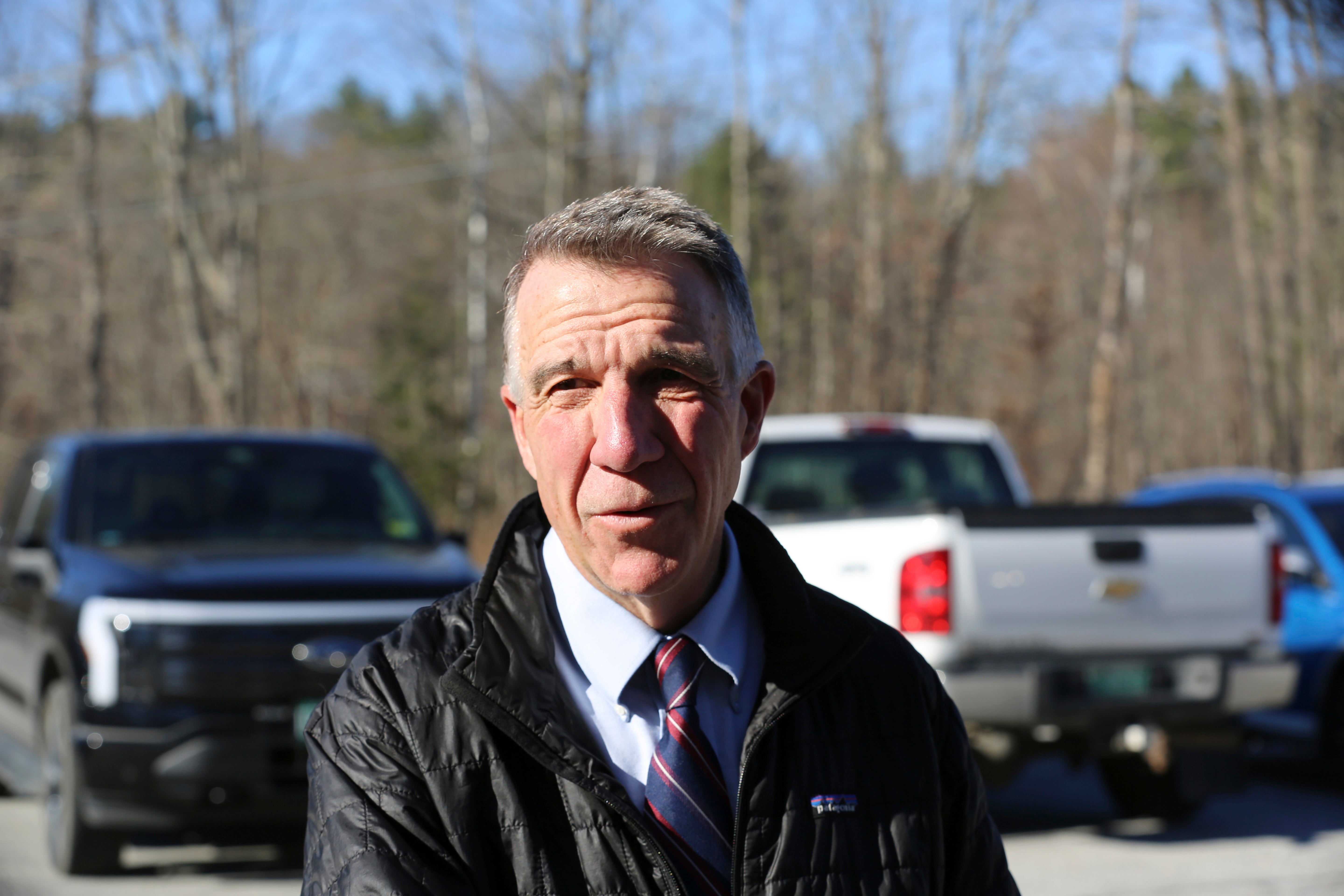Vermont becomes 1st state to enact law requiring oil companies pay for damage from climate change
Vermont has become the first state to enact a law requiring fossil fuel companies to pay a share of the damage caused by climate change after the state suffered catastrophic summer flooding and damage from other extreme weather

Your support helps us to tell the story
From reproductive rights to climate change to Big Tech, The Independent is on the ground when the story is developing. Whether it's investigating the financials of Elon Musk's pro-Trump PAC or producing our latest documentary, 'The A Word', which shines a light on the American women fighting for reproductive rights, we know how important it is to parse out the facts from the messaging.
At such a critical moment in US history, we need reporters on the ground. Your donation allows us to keep sending journalists to speak to both sides of the story.
The Independent is trusted by Americans across the entire political spectrum. And unlike many other quality news outlets, we choose not to lock Americans out of our reporting and analysis with paywalls. We believe quality journalism should be available to everyone, paid for by those who can afford it.
Your support makes all the difference.Vermont has become the first state to enact a law requiring fossil fuel companies to pay a share of the damage caused by climate change after the state suffered catastrophic summer flooding and damage from other extreme weather.
Republican Gov. Phil Scott allowed the bill to become law without his signature late Thursday.
He wrote in his message to lawmakers that “taking on ‘Big Oil’ should not be taken lightly” and that he is concerned about the costs and outcomes. He said he worries that if the state fails in this legal challenge “it will set precedent and hamper other states’ ability to recover damages.”
Maryland, Massachusetts and New York are considering similar measures.
Under the legislation, the Vermont state treasurer, in consultation with the Agency of Natural Resources, would provide a report by Jan. 15, 2026, on the total cost to Vermonters and the state from the emission of greenhouse gases from Jan. 1, 1995, to Dec. 31, 2024. The assessment would look at the affects on public health, natural resources, agriculture, economic development, housing and other areas. The state would use federal data to determine the amount of covered greenhouse gas emissions attributed to a fossil fuel company.
It’s a polluter-pays model affecting companies engaged in the trade or business of extracting fossil fuel or refining crude oil attributable to more than 1 billion metric tons of greenhouse gas emissions during the time period. The funds could be used by the state for such things as upgrading stormwater drainage systems; upgrading roads, bridges and railroads; relocating, elevating or retrofitting sewage treatment plants; and making energy efficient weatherization upgrades to public and private buildings.
“For too long, giant fossil fuel companies have knowingly lit the match of climate disruption without being required to do a thing to put out the fire,” Paul Burns, executive director of the Vermont Public Interest Research Group, said in a statement. “Finally, maybe for the first time anywhere, Vermont is going to hold the companies most responsible for climate-driven floods, fires and heat waves financially accountable for a fair share of the damages they’ve caused.”
The American Petroleum Institute, the top lobbying group for the oil and gas industry, has said it’s extremely concerned the legislation “retroactively imposes costs and liability on prior activities that were legal, violates equal protection and due process rights by holding companies responsible for the actions of society at large; and is preempted by federal law." It also said in a letter to lawmakers before the bill became law that the measure does not provide notice to potential affected businesses about the size of the potential fees.
Vermont legislators know that the law will face legal challenges, and the governor worries about costs to the small state.
“Instead of coordinating with other states like New York and California, with far more abundant resources, Vermont – one of the least populated states with the lowest GDP in the country – has decided to recover costs associated with climate change on its own,” Scott wrote. But he said he understands "the desire to seek funding to mitigate the effects of climate change that has hurt our state in so many ways.”
Vermont state Rep. Martin LaLonde, an attorney, said in statement that lawmakers worked closely with many legal scholars in shaping the bill.
“I believe we have a solid legal case. Most importantly, the stakes are too high – and the costs too steep for Vermonters – to release corporations that caused the mess from their obligation to help clean it up,” he said.